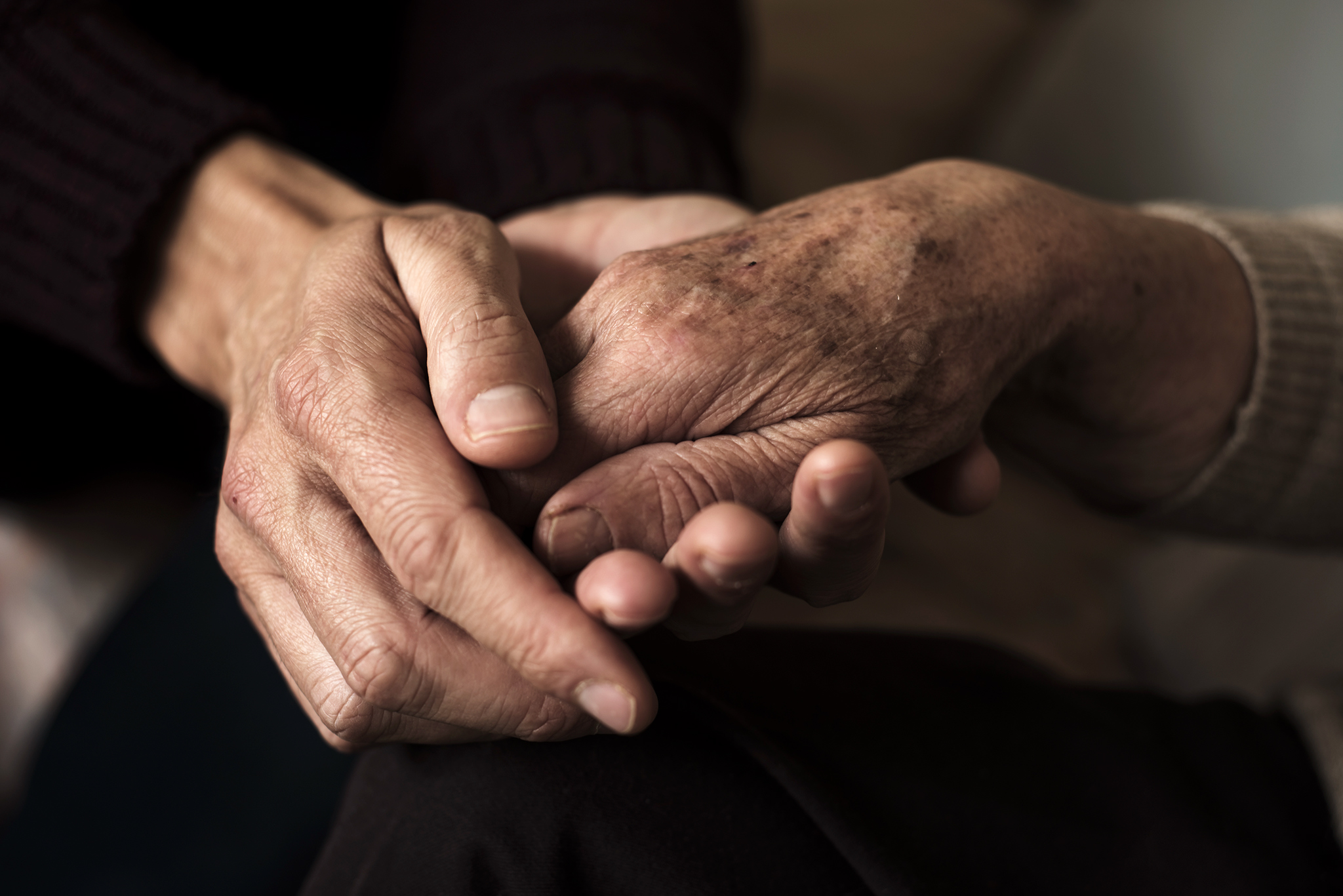- Home
- Patient Support
- Dealing With Loss

Dealing with loss
Dealing with loss can be a challenging and difficult time.1 We’ve prepared this page to help you understand how you may be feeling in the days and weeks after a loss.
Navigating loss
The first few days
During the first few days following a loss, you may feel shock or numbness.1 In a way, this is how the body can help people through the initial pain being experienced. You might also be unable to focus on even simple tasks and not fully aware of what you're doing.1
Others may think you’re holding up well, but the reality of your loss might still be sinking in.
If your loved one had a long-term illness, there could also be a sense of relief that his or her suffering is over. These feelings are usually quite normal.1
The first few weeks
In the first few weeks following a loss, you may feel abandoned or forgotten by family and friends who have moved on and returned to their usual routine. Or, if you’re still in shock, you might be thinking that the grieving process isn’t as hard as you feared.1
How long the grief will last is different for everyone. Remember there is no set time frame for grief, so be patient with yourself and take all the time you need to heal.1
Some of the symptoms you might notice may include:
- Trouble sleeping
- Difficulty concentrating
- Feeling weak
- Change in appetite
There is hope, and it does get better
Eventually, you will start adjusting to life without your loved one. You may find new routines, new hobbies, and new sources of support. As time goes on, you’ll feel more comfortable with your new life.1
Taking steps towards feeling better
Learn that grief is regarded as being normal, natural, and may take time. It’s not a race – nor should it be about ‘getting over it’ quickly. Take your time, and grieve at your own pace.1
Don’t be afraid to reach out to others when you need help or support.1
One suggestion you may like is to keep a diary and write down how you're feeling every day.
Distraction doesn't mean you're trying to forget about the person you're grieving for, it just means you're trying to take steps towards helping yourself cope and you're giving yourself a break.
One way many people try to help themselves with the grieving process is to talk to the people they're grieving for. This means you are involving your loved one in daily life and it gives an opportunity to think about what they would say or do in some of the situations you find yourself in.
For some, whilst they are grieving, it is challenging to focus on their health and wellbeing. This may include maintaining a healthy diet, plus regular exercise and sleep, however it is recommended to try to keep prioritising these into your daily life.1
What if I'm not starting to feel better?
There generally are many different emotions experienced during the grieving process, however it may be helpful to also learn more about when these feelings are potentially more than just grief.1
Depression is a serious illness, and signs that you could be experiencing depression include:2
- Feelings of guilt
- Ongoing worthlessness and hopelessness
- Being unable to eat or shower
- Crying for long periods of time
- Eating a lot or not at all
- Anxiety or feeling afraid
- Sleeping too much, or too little
Where can I find help?
It’s important to see your doctor or counsellor if you think you are suffering from depression.2 Beyond Blue can also provide advice and resources to help.
If you are experiencing suicidal thoughts, please immediately call Triple Zero 000 in Australia, or urgently seek medical or psychological support.
Lifeline Australia have a free phone line for all Australians who are experiencing personal crises. Phone 13 11 14 or visit the Lifeline website at www.lifeline.org.au.
Read next

For caregivers
Caring for a loved one with cancer comes with a lot of responsibilities. We’re here to help you with these challenges.

Our centres
We believe care should be focused on you, the individual, not the condition. We offer a personalised cancer care experience, aiming to achieve the best possible clinical outcomes close to home.

Radiation therapy for cancer
Radiation therapy kills cancer cells. It’s used in the early stages of cancer treatment or after it has started to spread.
- Cancer Council. Understanding grief. 2020. Available from: https://www.cancercouncil.com.au/cancer-information/advanced-cancer/grief/ (accessed October 2023).
- Cancer Council. Living well after cancer. 2021. Available from: https://www.cancercouncil.com.au/cancer-information/living-well/after-cancer-treatment/adjusting-to-life-after-treatment/understanding-your-feelings/feeling-down-or-depressed/ (accessed October 2023).

You are leaving our website
You are now leaving our website. GenesisCare do not control this content and therefore are not responsible for its accuracy or reliability.
Disclaimer:
This website is provided for information purposes only. Nothing on this website is intended to be used as medical advice, or to diagnose, treat, cure or prevent any disease. It should not be used as a substitute for your own health professional's advice. Any medical procedure or treatment carries risks. Before proceeding with treatment, you should discuss the risks and benefits of the treatment with an appropriately qualified health practitioner. Individual treatment outcomes and experiences will vary.




